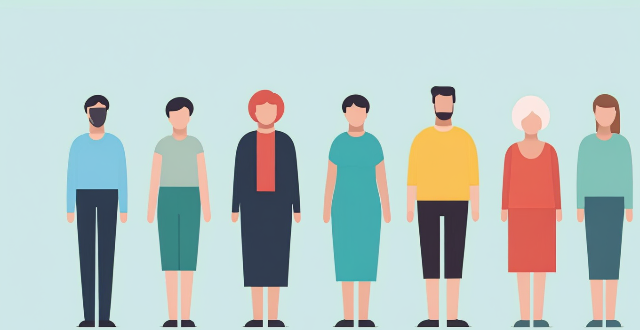The role of women in the legal system has evolved significantly over time. Women are now allowed and encouraged to serve on juries, bringing diversity of perspectives, increased trustworthiness, and improved decision-making. However, women still face challenges in achieving parity with men in holding positions of power within the legal system. Efforts such as affirmative action programs, mentorship programs, and flexible work arrangements have been implemented to address these issues.

Can Women Serve on Juries and Hold Positions of Power within the Legal System?
Introduction
The role of women in the legal system has evolved significantly over time. Historically, women were excluded from many aspects of the legal profession, including serving on juries and holding positions of power. However, in recent decades, there has been a push for greater gender equality in the legal system. This article will explore whether women can serve on juries and hold positions of power within the legal system.
Women Serving on Juries
Historical Background
In the past, women were often excluded from jury service due to gender biases and societal norms that viewed women as less capable of making impartial decisions. However, this has changed over time as laws have been enacted to ensure that juries are selected from a fair cross-section of the community, which includes women.
Current Status
Today, women are not only allowed but also encouraged to serve on juries. Many jurisdictions have implemented measures to increase the representation of women on juries, such as removing gender-specific language from jury selection processes and providing childcare assistance for those who need it.
Benefits of Women Serving on Juries
There are several benefits to having women serve on juries:
- Diversity of Perspectives: Women bring unique life experiences and perspectives to the jury, which can lead to more well-rounded discussions and decisions.
- Increased Trustworthiness: Studies have shown that juries with female members are perceived as more trustworthy and fair by the public.
- Improved Decision-Making: Research suggests that mixed-gender juries make better decisions than single-gender juries, as they consider a wider range of evidence and viewpoints.
Women Holding Positions of Power within the Legal System
Historical Background
Women have faced significant barriers to entering and advancing within the legal profession. In many countries, it was not until the mid-20th century that women were allowed to practice law at all. Even after gaining entry into the profession, women often encountered discrimination and glass ceilings that prevented them from rising to leadership positions.
Current Status
While progress has been made, women still face challenges in achieving parity with men in the legal profession. According to various studies and reports:
- Representation at Senior Levels: Women remain underrepresented in senior positions within the legal system, such as judgeships, partner roles in law firms, and top government positions.
- Pay Gap: A gender pay gap persists within the legal profession, with female lawyers earning less than their male counterparts on average.
- Workplace Culture: Women in the legal profession often report experiencing sexual harassment, gender bias, and a lack of support for work-life balance.
Efforts to Increase Gender Equality
To address these issues, various initiatives and policies have been implemented, including:
- Affirmative Action Programs: Some jurisdictions have implemented affirmative action programs to increase the number of women appointed to judgeships and other positions of power within the legal system.
- Mentorship Programs: Law firms and bar associations offer mentorship programs to support female lawyers in their career development and help them navigate the challenges they face.
- Flexible Work Arrangements: In response to concerns about work-life balance, many law firms now offer flexible work arrangements, such as remote work options and reduced hour requirements, to attract and retain female lawyers.
Conclusion
In conclusion, women can certainly serve on juries and hold positions of power within the legal system. While historically there have been barriers to their participation, ongoing efforts to promote gender equality have led to increased representation and opportunities for women in the legal profession. However, challenges still exist, and continued work is needed to achieve true parity for women in the legal system.